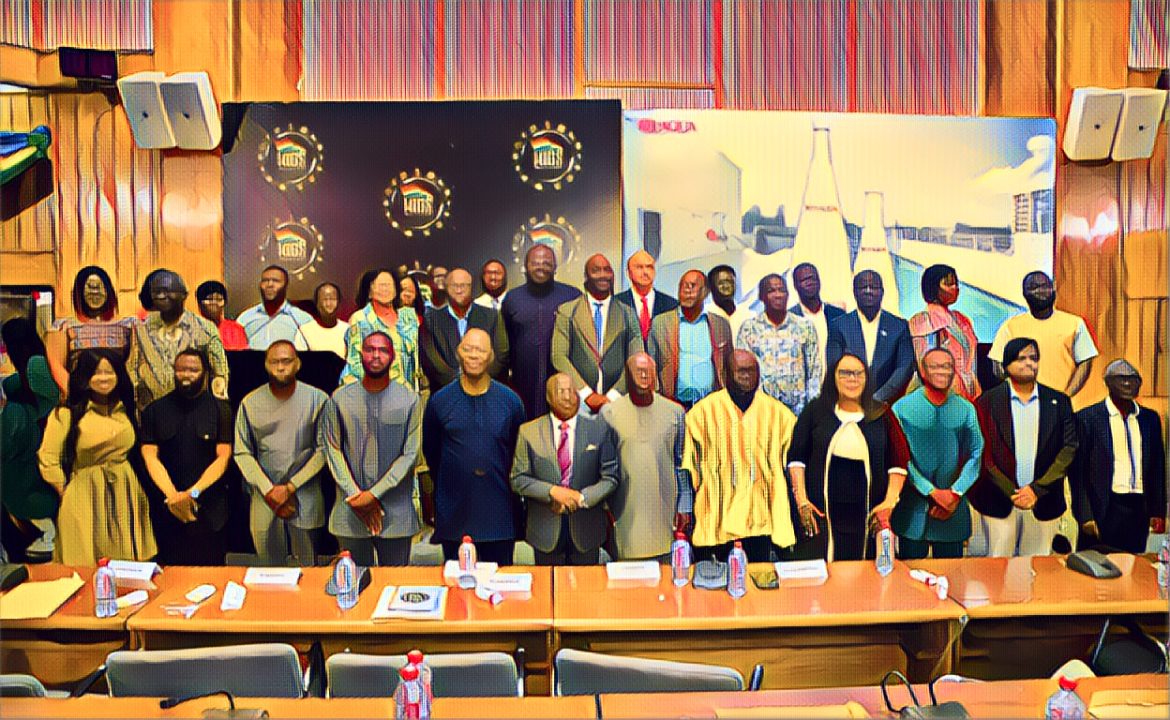Prof Ken Agyemang Attafuah, the Executive Secretary of the National Identity Authority (NIA), has emphasized the need for robust public-private partnerships (PPPs) as a cornerstone for accelerating Ghana’s journey towards digital transformation. Speaking at the second edition of the Made in Ghana summit in Accra, Prof Attafuah outlined this strategy as vital for the nation’s digital future.
Organized by the Entrepreneur Foundation of Ghana (EFG), the summit took place on December 8 under the theme “The Role of Public-Private Partnerships in Sustainable Digital Transformation.” This event drew together influential figures from public and private sectors, including policymakers, entrepreneurs, and members of the diplomatic corps, focusing on government’s digitalization, industrialization, and business development initiatives.
According to a report by the Daily Graphic, Prof Attafuah highlighted the successful collaboration between NIA and its technical partner, Identity Management Systems II Limited (IMS II), as an exemplar of PPPs’ critical role in fostering digital transformation. He detailed how these partnerships leverage the vision and trust of government entities with the technological expertise and dynamism of the private sector. The Ghana Card, a product of such collaborative efforts, exemplifies efficiency, security, and inclusivity, showcasing the fusion of public guidance and private innovation.
Advocating further for PPPs, Prof Attafuah underscored the complementary strengths these collaborations harness. Governmental bodies contribute overarching visions, legal frameworks, public trust, and stakeholder engagement skills, while private partners like Margins Group bring cutting-edge technology and specialized knowledge. This symbiotic relationship has resulted in a robust identity management system, adhering to international standards and meeting the unique identification needs of Ghanaians.
Dr Ken Ashigbey, CEO of the Ghana Chamber of Telecommunications, mirrored Prof Attafuah’s views, stressing the critical role of collaboration between public and private sectors in enhancing technological accessibility, such as affordable handsets. He cited Rwanda’s initiative of providing free smartphones to citizens as a model for Ghana’s digital pathway.
Dr Ashigbey encouraged stakeholders to seize collaboration opportunities, advocating a unified approach involving the government, private sector, third sector, and academia. This, he believes, is essential for sustainable digital transformation in Ghana.
The Made in Ghana summit represents a significant milestone in Ghana’s digital evolution, setting the stage for a future where digital transformation is achieved through strategic and collaborative efforts.





5 comments
Wenn du dich also nach Freiheit ohne die deutsche Regulierung sehnst,
dann sind Casinos ohne GGL-Lizenz das Nonplusultra für dich.
Um das beste Spielerlebnis im Online Casino ohne deutsche Lizenz zu haben, solltest du dich an die nachfolgenden Tipps und Tricks halten. Beide haben bei
unserem Casino ohne deutsche Lizenz Test hervorragend abgeschnitten – und somit gibt’s von uns
eine uneingeschränkte Empfehlung.
Wer dort einmal gesperrt ist, kann sich bei keinem deutschen Casino mehr registrieren. Auch wenn Casinos
mit deutscher Lizenz “Slots Only” sind, dürfen sie nicht
alle Spielautomaten anbieten. Deutsche Casinos hingegen dürfen nur extra
lizenzierte Slots anbieten.
Einige der besten Casinos ohne Lizenz bieten Neukundenpakete an, die sich über
mehrere Einzahlungen erstrecken. Viele Spieler suchen gezielt das beste Online Casino ohne deutsche Lizenz, um von besonders hohen Bonusaktionen und attraktiven Cashback-Angeboten zu profitieren. Ein Punkt, der im Casino Test
sehr klar für die Anbieter ohne deutsche Lizenz spricht, sind die Bonus Angebote.
References:
https://online-spielhallen.de/sugar-casino-freispiele-alles-was-sie-wissen-mussen/
U.S. Defense Secretary Pete Hegseth thanked the Nigerian government for its support and cooperation in a
post on X, adding that there was “more to come…” A video posted by
the Pentagon showed at least one projectile launched from a warship.
“This has led to precision hits on terrorist targets in Nigeria by air strikes in the North West,” the ministry said in a post on X.
But OpenAI is involved in at least one lawsuit that has implications for AI systems trained on publicly available data, which would touch on ChatGPT.
But OpenAI recently disclosed a bug, since fixed, that exposed the titles of some users’
conversations to other people on the service. Several tools claim
to detect ChatGPT-generated text, but in our tests,
they’re inconsistent at best. Several major school systems and
colleges, including New York City Public Schools,
have banned ChatGPT from their networks and devices. The private equity company
that owns CNET, Red Ventures, was accused of using ChatGPT for SEO farming, even if the
information was incorrect. The web form for making a deletion of data about
you request is entitled “OpenAI Personal Data Removal Request”.
References:
https://blackcoin.co/free-slots-play-32178-online-slot-games-no-download/
We provide detailed reviews and up-to-date information on the best casinos that offer seamless withdrawal options, ensuring you have a smooth
and convenient experience. When it comes to the variety of casino
games, we believe in quality over quantity. Just note,
there’s no one-size-fits-all ‘best’ casino; it’s
all about finding your perfect match for your play style and budget.
We also check out the overall design, so you can trust to get the best
Australian online casino reviews.
This is a variety that you won’t find in land-based casinos.
When given a choice, I would choose playing at an actual casino 10 out of 10 times.
Open the deposit section, choose a payment method and opt-in for a bonus.
Depending on the casino you choose, you will either get an SMS text or an email that you will need
to verify before depositing. I sound like a broken record by now, but the best advice
of all is to manage your bankroll and set aside a precise amount of money for gambling
that you feel comfortable losing. Buying the bonus round in pokies.
References:
https://blackcoin.co/20_which-casino-has-the-best-loyalty-program-vip-rewards-explained_rewrite_1/
online poker real money paypal
References:
https://empleos.contatech.org/employer/paypal-casinos-top-online-casinos-that-accept-paypal/
gamble online with paypal
References:
https://clicknaukari.com/employer/best-paypal-online-casinos-real-money-deposits-withdrawals-al-com/